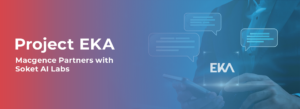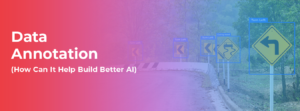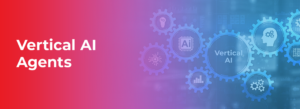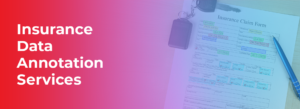Transforming Data Training by Macgence’s Healthcare AI & Natural Language Processing (NLP) Solutions
Welcome to a deep dive into the world of precision in healthcare with AI. In this comprehensive exploration, we unravel the essence of AI in healthcare, demystifying the application of machine learning (ML) algorithms and cognitive technology. As we navigate the impact of healthcare AI and NLP solutions in healthcare, we shed light on its crucial role in interpreting human language and converting vast amounts of unstructured data into actionable insights. The blog further explores the importance of medical data collection, emphasizing its role in enhancing medical healthcare AI models for precision and efficiency. Also, discover how Macgence’s data solutions improve medical healthcare AI models, ensuring training accuracy, reducing bias, and providing real-world applicability.
What is AI in Healthcare?

AI in healthcare is used to explain the application of ML algorithms and other cognitive technology in medical settings. Healthcare in AI uses machines to analyze and act on clinical data, usually to predict a particular outcome.
ML and other cognitive disciplines for medical diagnosis are significant medical healthcare AI use cases. Using healthcare datasets, AI can help doctors and medical providers deliver extra accurate diagnoses and treatment plans. Also, Medical Healthcare AI and NLP solutions can be more predictive and proactive by reading big data to develop improved patient preventive care guidelines.
Healthcare is one of the most vital sectors in the broader panorama of big data due to its essential role in a productive, thriving society. AI can help medical doctors, nurses, and other healthcare workers with their everyday work. Medical healthcare AI can enhance preventive care and quality of life, produce more accurate diagnoses and treatment plans, and cause better patient outcomes overall. AI can also track the spread of infectious diseases by reading data from a central authority, healthcare, and other sources.
Why is Medical Data Important?

The importance of medical data collection can be understood and ascertained better because market size concerning the implementation of data annotation tools in healthcare to prepare healthcare datasets is expected to grow by at least 500% in 2027 compared to 2020 with the help of healthcare AI and NLP solutions.
But that’s not all; intelligent models that are appropriately trained in the first place can help healthcare setups cut additional costs by automating several administrative tasks and saving up to 30% of residual expenses. And yes, trained ML algorithms can analyze 3D scans at least 1000 times quicker than they get processed today in 2021.
Impact of NLP on Healthcare

They are pivotal because they interpret human language and convert vast amounts of unstructured data into actionable insights. Its impact spans numerous areas, considerably in Electronic Health Records (EHR), clinical trial management, drug discovery, and medical data collection.
NLP in EHR
EHRs are digital repositories for a patient’s medical history, containing vast data, including medical data collection, medicines, and lab results. Given the unstructured nature of this data, Healthcare AI and NLP solutions become crucial. They process unstructured information within EHRs, making it easily analyzable. This saves physicians time and facilitates efficient extraction of insights, leading to cost savings and in-depth data analysis.
Critical applications of NLP in EHR include:
- Information Extraction: Extracting crucial details from clinical notes, such as diagnoses and symptoms.
- Enhancing Phenotyping: Improving phenotype extraction to support precision medicine.
- Patient Cohorts Identification: Identifying suitable patient groups for clinical trials.
NLP in Clinical Trial Management
Clinical trials involve complex processes, and identifying suitable patients is often challenging due to unstructured trial data. Healthcare AI and NLP solutions automate patient identification, applying inclusion/exclusion criteria to Electronic Medical Record (EMR) data and expediting selection. Additionally, it aids in assessing site suitability for trials by analyzing factors like investigator availability and historical performance and optimizing trial processes.
NLP in Drug Discovery and Development
In drug discovery, NLP accelerates data search, helping uncover relevant information and supporting experiments based on past results. Transformer architectures in NLP contribute to understanding chemical structures and predicting molecular interactions. Healthcare AI and NLP solutions’ role in drug development includes gene-disease mapping, adverse drug event detection, and protein structure design.
NLP in Medical Diagnosis and Procedures
It plays a crucial role in patient care and diagnosis by analyzing unstructured data. Clinical assertion modeling, a key NLP component, determines patient issues and statuses, assisting physicians in prioritizing treatment plans. Medical healthcare AI has notable medical diagnoses, and healthcare uses involve detecting clinical entities, identifying assertion statuses, diagnosing procedures, and detecting temporal relations for improved patient assessment.
Use Cases of AI training data in healthcare

Medical Imaging Analysis
Healthcare AI and NLP solutions use annotated medical images to enhance diagnostic accuracy. Training on diverse datasets improves the identification of anomalies, aiding radiologists in detecting diseases like cancer at early stages with increased precision.
Patient Outcome Prediction
AI systems trained on patient data can forecast possible problems and health results. It helps healthcare professionals plan proactive, personalized patient care by lowering hospital readmission rates and enhancing patient outcomes.
Drug Discovery and Development
Training AI accelerates drug development, incorporating genetic information, clinical trial findings, and molecular structures. Healthcare AI and NLP solutions aid in finding potential medication candidates, expediting the research and development phase.
Robot-Assisted Surgeries
AI models assist surgeons in complex operations, enhancing precision and reducing errors. Healthcare AI and NLP solutions applications depend on diverse datasets, improving diagnosis and personalizing treatment for optimal outcomes.
Genomic Data Analysis
Healthcare AI and NLP solutions leverage genomic datasets, analyzing genetic factors underlying diseases. This empowers personalized treatments, propelling advancements in genomic research for transformative healthcare solutions.
Rehabilitation Assistance
AI models analyze rehabilitation data, movement patterns, and recovery progress, empowering healthcare professionals to optimize personalized strategies for enhanced patient outcomes through tailored rehabilitation care.
How can you improve Your Healthcare AI Models via AI-trained data?

Developing effective medical healthcare AI models involves an active approach to Healthcare AI and NLP solutions, including data generation & collection, transcription, annotation, and enhancements. Here’s how it contributes to the effectiveness of healthcare AI models:
Data Generation & Collection
The quality and quantity of data gathered directly impact the model’s performance. Collecting diverse and representative healthcare datasets ensures the model encounters a broad range of scenarios, enhancing its adaptability to real-world situations.
Transcription
Medical Healthcare AI models can evaluate and understand vast amounts of textual data by transcribing medical and healthcare datasets into machine-readable formats using Healthcare AI and NLP solutions. This improves diagnostic and predictive capacities by making patient histories, treatment plans, and medical data more accessible.
Annotation
Labeled healthcare datasets collected by annotating medical pictures, such as MRIs or X-rays, aid medical healthcare AI models in identifying and analyzing visual patterns by accurate use of Healthcare AI and NLP solutions. Precise annotations enhance diagnostic precision by facilitating the model’s ability to detect irregularities or particular ailments.
Data Enhancements
Enhancing medical data collection involves refining its quality, addressing imbalances, and introducing variations. This step ensures the medical healthcare AI model is exposed to various situations, improving its generalization capabilities and robustness in handling diverse healthcare scenarios.
Macgence’s AI training data enhances your healthcare AI models
- Training Accuracy:
- Exposure to diverse scenarios in our high-quality Healthcare AI and NLP solutions enhances your AI model’s accuracy and reliability in understanding various healthcare situations. Also, it ensures that the model is well-prepared for real-world challenges by replicating a broad spectrum of scenarios.
- Reduced Bias:
- Carefully curated healthcare datasets by Macgence minimize biases in medical healthcare AI models, preventing unfair preferences for specific groups or characteristics.
- Real-World Application:
- Macgence’s data solutions directly influence the real-world performance of your healthcare AI models. Increases the likelihood of your model delivering meaningful and dependable results when confronted with a wide range of inputs and healthcare-related scenarios.
- Robustness:
- The incorporation of various situations and edge cases in our Healthcare AI and NLP solutions enhances the robustness of your healthcare AI model. It enables your AI model to handle different backgrounds and real-world factors effectively, contributing to its overall resilience.
- Advanced-Data Security:
- Macgence prioritizes the highest privacy and data security standards, ensuring the confidentiality and integrity of healthcare AI training data. Adherence to ISO-27001 and HIPAA standards guarantees that sensitive healthcare records are handled with the maximum care and compliance.
Conclusion

AI in healthcare marks a significant advancement. It streamlines data processing and enhances patient diagnosis and care. Healthcare AI and NLP solutions applications in EHRs, clinical trials, and drug development are pivotal. To harness its full potential, healthcare professionals must focus on healthcare dataset quality, error minimization, and continuous NLP training. Adhering to privacy standards and integrating systems efficiently are also crucial. With these practices, NLP will continue to offer improved outcomes and efficiency.
FAQs
Ans: – AI technology like natural language processing (NLP), predictive analytics, and speech recognition help healthcare providers communicate more effectively with patients.
Ans: – Disadvantages of AI include no ethics, no creativity, and unemployment.
Ans: – AI in the healthcare region is becoming more famous since global AI in the healthcare market is projected to reach $173.55 billion by 2029, developing at a CAGR of 40.2% from its 2022 valuation of $16.3 billion.
You Might Like
February 28, 2025
Project EKA – Driving the Future of AI in India
Spread the loveArtificial Intelligence (AI) has long been heralded as the driving force behind global technological revolutions. But what happens when AI isn’t tailored to the needs of its diverse users? Project EKA is answering that question in India. This groundbreaking initiative aims to redefine the AI landscape, bridging the gap between India’s cultural, linguistic, […]
March 7, 2025
What is Data Annotation? And How Can It Help Build Better AI?
Spread the loveIntroduction In the world of digitalised artificial intelligence (AI) and machine learning (ML), data is the core base of innovation. However, raw data alone is not sufficient to train accurate AI models. That’s why data annotation comes forward to resolve this. It is a fundamental process that helps machines to understand and interpret […]
March 6, 2025
Vertical AI Agents: Redefining Business Efficiency and Innovation
Spread the loveThe pace of industry activity is being altered by the evolution of AI technology. Its most recent advancement represents yet another level in Vertical AI systems. This is a cross discipline form of AI strategy that aims to improve automation in decision making and task optimization by heuristically solving all encompassing problems within […]
March 5, 2025
Use of Insurance Data Annotation Services for AI/ML Models
Spread the loveThe integration of artificial intelligence (AI) and machine learning (ML) is rapidly transforming the insurance industry. In order to build reliable AI/ML models, however, thorough data annotation is necessary. Insurance data annotation is a key step in enabling automated systems to read complex insurance documents, identify fraud, and optimize claim processing. If you […]

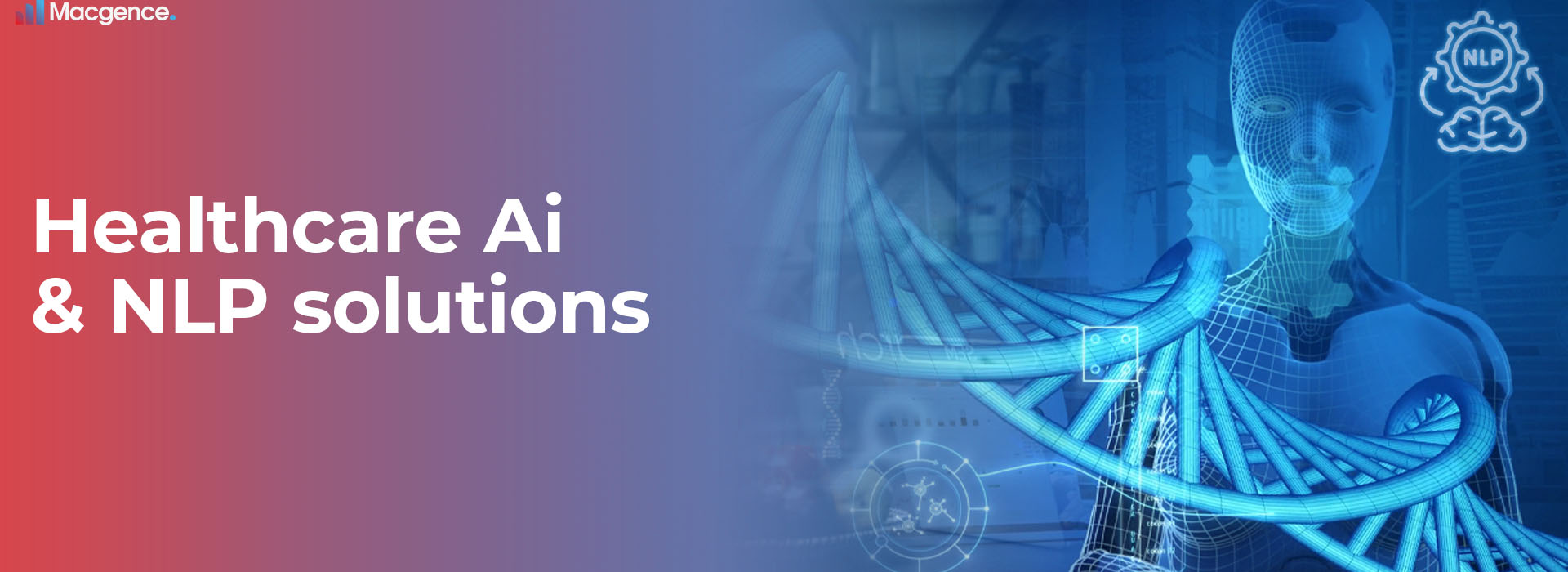
 Previous Blog
Previous Blog




